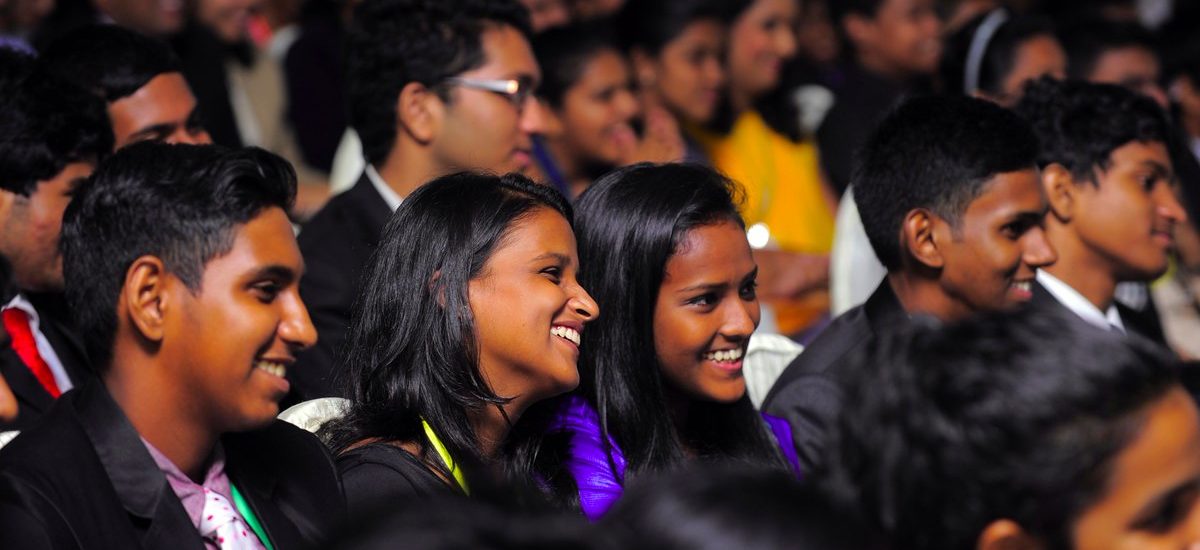Photo courtesy of UNICEF Sri Lanka
According to the latest estimates by the United Nations, in 2019, 1.2 billion of the world’s population were between the ages of 15 and 24. That is one in every six people! Needless to say, a good number of that demographic have their liberty, dignity and fundamental rights stolen from them.
Everyone may have a different idea of what liberty means to them. But the most common understanding of the concept might be the individual capacity or capability to act freely, without restriction or interference from an external party. This could apply to one’s way of living, behaviour, beliefs, political view or religion. Liberty is governed by the single rule that your freedom should not come at the expense of someone else’s.
In a democratic society, individual liberty is regarded with importance and enables various systems to protect these rights. Institutions such as those protecting and promoting human rights, rule of law, freedom of expression, right to information are a few. However, these systems alone are not enough to solidify the need of the hour.
Today we celebrate International Youth Day. Many programmes, initiatives, events and functions centred around youth will be taking place all around the world celebrating the rights, liberty and empowerment of youth.
In Sri Lanka, however, there are still countless instances where youth have been stripped of their liberty and freedom. Over the past decades there have been many youth rallies and protests that have been violently disrupted, infringing on their freedom of expression. Peaceful protests often take a violent turn due to the interruption of authorities, ending with youth advocates being reprimanded. Sri Lankan youth are increasingly seen as a force of disruption rather than agents of change and their voice is often ridiculed by leaders and the media, demolishing any credibility or platform they have to raise their issues and demand justice. This silencing culture is normalised through our education system where students in schools and universities are taught to listen, memorise and parrot out answers, and not question or challenge the status quo.
Government efforts to empower youth often fail because of their strict adherence to convention and tradition rather than reason or pragmatism. Youth empowerment programmes seem to consist of theoretical knowledge void of critical thinking on the basis of promoting employability over liberty, creating social puppets who are easily manipulated and mobilised for the advantage of others.
We have created a culture where youth are not considered leadership material and not taken seriously. According to government statistics in 2015, the Sri Lankan literacy rate was 96%. Yet how much of this percentage are media literate? How many are politically literate? How many are aware of their fundamental and legal rights? And even if they are aware, how many youths are truly empowered to advocate for those rights?
This is the reason that youth empowerment must be liberty and rights focused rather than merely employment and industry oriented. In order to create a truly liberal and free society, we must empower our youth to value and prioritise their own liberty as well as promote that of others. This is essential to keep the democratic system functioning.
Students for Liberty (SFL) is the world’s largest pro-liberty network that consists of students, professionals and concerned citizens from around the globe who work for the common goal of advancing liberty of everyone. Founded in 2008 by a group of students who saw the wide gap between youth and liberty, the movement grew rapidly into an international network of students and youth leaders who value their freedom and rights.
Being active in the regions of North America, EU, Brazil, Africa and South Asia for over a decade, SFL started its operations in Sri Lanka in 2019 with a group of passionate youth who believe in equal rights, freedom and peace. Since then the Sri Lankan chapter of SFL has grown in size and is widely recognised as the only youth body that primarily advocates for freedom and liberty of the youth in Sri Lanka through awareness building, digital advocacy, training, researching and intervention, partnering with local organisations that work from both grassroot and policy levels such as The Advocata Institute, Verite Research and Hashtag Generation.
SFL works to strengthen and empower local youth and connect them with global ideals and trends that define the rights of youth and opportunities that comes along with it. Focusing on topics such as freedom of expression, trade liberalisation and free markets, progressive law reforms, peace and justice, democracy and human rights, religious and cultural freedom, equality and LGBTQ+ rights, ending the war against drugs and other areas connected to liberty and individual freedom, SFL Sri Lanka explores the best methods to raise awareness on these subjects, introducing critical and free thinking as a common practice for tomorrow’s youth.
International Youth Day is not just a day dedicated to celebrating youth and their achievements; it is a day to reflect on the status of youth in the 21st century. Being in the decade of action for the UN Agenda 2030, it is important to identify the role of youth in the future. If they are to achieve the best of their capacities, they should be able to act freely, pursue their ideas and invest in them liberally. This must be the responsibility not only for world leaders, political, business, and religion alike but also for every global citizen. It is the need of the hour.
The writer is the Leadership Management Regional Coordinator, South Asia Students for Liberty

